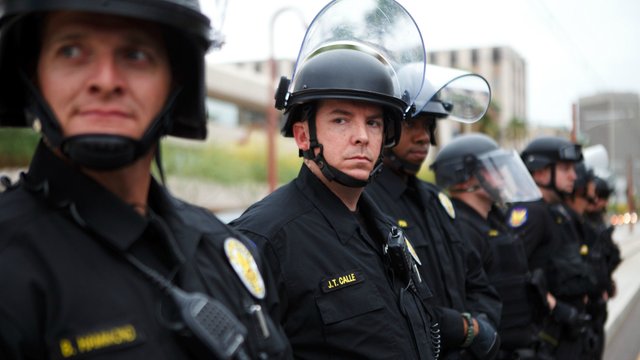
John MacDonald
In the past few years, the topic of police reform, and the role of legal interventions by the courts has been discussed by politicians and covered extensively in the media. One of the more intrusive forms of court interventions is the use of a consent decree – a settlement agreement filed in federal court between plaintiffs and the local government agency in charge of the police. Typically consent decrees are overseen by a judge, who can legally enforce provisions in the agreement.
Some have claimed that these agreements lead to reductions in police morale, reduce the proclivity of police officers to act proactively, and over time cause crime rates to rise (see https://www.justice.gov/opa/speech/attorney-general-jeff-sessions-delivers-remarks-chicago-crime-commission). Others have argued that consent decrees offer one of the only effective remedies to addressing police compliance with civil rights (https://chicago.suntimes.com/news/what-is-a-consent-decree/). Both sides offer big claims, but what do we know?
Unfortunately, there is limited research on the effect of consent decrees on police morale, officer behavior, or crime. Studies of consent decrees in Los Angeles and Pittsburgh suggest that when police leadership embraced the decrees, there is some increase in public satisfaction with police services with no evidence of harmful effects on police morale. The evidence also shows that there is no increase in crime or reductions in arrests after these decrees were put into place. In Cincinnati, the results from an evaluation of a collaborative agreement, a less restrictive agreement than a consent decree, found that improvements in community satisfaction after the formation of the collaborative agreement and several reforms started by the police department. Crime rates did not drastically change after the collaborative agreement was established. This evidence, however, is largely descriptive – meaning that we can only observe crime, arrests, and reports of satisfaction with the police before and after consent decrees are put into place. We do not have an adequate comparison group of agencies that could have been placed under a decree but were not. The unknown reasons why certain police agencies ultimately get placed under consent decrees means it is very difficult to draw strong conclusions about their impact on the police and communities they serve.
What is clear, however, is that consent decrees by their very design place a number of mandatory reforms on police agencies, typically requiring new training of officers, hiring criteria, promotion criteria, internal review of officers, and even different forms of outside scrutiny, such as more extensive auditing of data collected by police departments. These changes typically upgrade police department standards. Whether these changes lead to improvements in police service deliver is an open question. But clearly, the changes are often substantial and require a lot of work by the police agency responsible.
In recent years a number of police departments have come under scrutiny for high profile shootings or killings of civilians. The Baltimore Police Department and the Chicago Police Department both have entered into court ordered settlement agreements in the aftermath of high profile events that triggered massive civilian protests. Some have argued that the police in these agencies have become less aggressive in the enforcement of crime, and that the climbing crime rates in these cities is the result of consent decrees and other forms of outside intervention. This claim, however, can be disputed because court orders were put in effect long-after crime began to rise in Baltimore and Chicago.
References
Suggested Readings:
Davis, R. C., Henderson, N. J., & Ortiz, C. W. (2005). Can Federal Intervention Bring Lasting Improvement in Local Policing?: The Pittsburgh Consent Decree. New York, NY: Vera Institute of Justice.
Stone, C., Foglesong, T., & Cole, C. M. (2009). Policing Los Angeles under a consent decree: The dynamics of change at the LAPD. Harvard Program in Criminal Justice Policy and Management.

